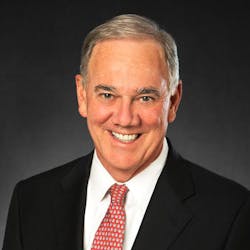Valero execs see 2022 margins above mid-cycle levels
Low crude oil inventories and expectations for continued demand growth have Valero Energy Corp.’s leaders looking to 2022 more optimistic than before about pricing and profitability.
Texas-based Valero on Thursday reported third-quarter results that beat expectations, with net income coming in at $463 million and refining margin jumping to $2.6 billion from $952 million in last year’s third quarter. CEO Joe Gorder told analysts and investors on a conference call that “the significant refinery capacity rationalization” of the past 18 months, along with strong demand and low inventories in the United States and around the globe, has the Valero team upbeat about the coming year producing profits above what might be expected at the midpoint of the industry cycle.
“It’s difficult for us to see that we’re going to replenish clean-product inventories before next year,” Chief Commercial Officer Gary Simmons added. “We’re starting to move to a view that we could see some fairly strong crack spreads […] We probably came in looking at 2022 slightly below midcycle and it’s trending now more above midcycle-type levels.”
That solid operational backdrop is one reason investors shouldn’t look for Valero, one of the biggest players in the refining sector, to grow further via acquisitions even as several refineries are being brought to market. Gorder said his team is “very comfortable” with Valero’s portfolio of assets and that, while the company was regularly a buyer in years past and is keeping an eye on potential deals, it is now far more focused on investing in the assets it already has.
Also on Thursday’s call, Senior Vice-President of Alternative Energy and Project Development Martin Parrish addressed why the company isn’t yet stepping into the sustainable aviation fuel market. It’s not a question of demand, he said, and there are “plenty of customers” interested. But, he added, it’ll take a tax credit similar to those for some other products to make the economics work – particularly because Valero would need to invest in a fractionator at the minimum to get rolling.
"We're not waiting engineering-wise," Parrish said. “It’s not a question of if we’re going to produce and sell SAF. It’s a question of when. We’re looking for positive and incremental EBITDA out of this and not just to do it.”
Shares of Valero (Ticker: VLO) were essentially flat Thursday after the earnings report. Year to date, they have risen about 40%, growing the company’s market capitalization to roughly $33 billion.
About the Author
Geert De Lombaerde
Senior Editor
A native of Belgium, Geert De Lombaerde has more than two decades of business journalism experience and writes about markets and economic trends for Endeavor Business Media publications Healthcare Innovation, IndustryWeek, FleetOwner, Oil & Gas Journal and T&D World. With a degree in journalism from the University of Missouri, he began his reporting career at the Business Courier in Cincinnati and later was managing editor and editor of the Nashville Business Journal. Most recently, he oversaw the online and print products of the Nashville Post and reported primarily on Middle Tennessee’s finance sector as well as many of its publicly traded companies.

